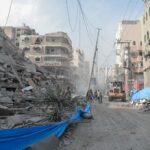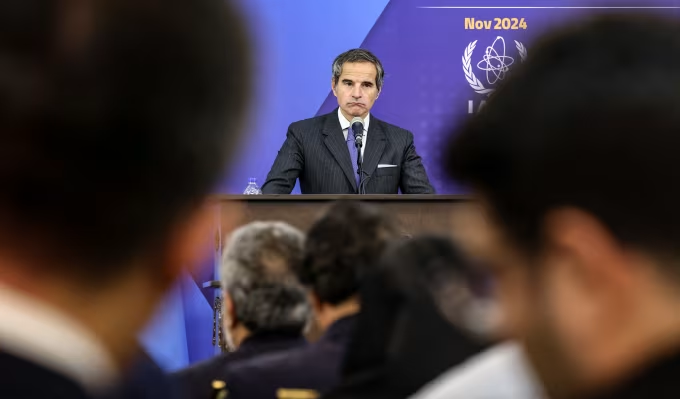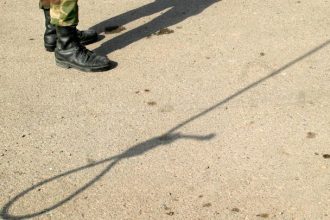Israeli Prime Minister Benjamin Netanyahu declared a “historic victory” against Iran despite a classified United States intelligence report concluding that American strikes only set back Tehran’s nuclear program by a few months.
The announcement came as a ceasefire took effect Tuesday, ending 12 days of intense cross-border strikes between the regional adversaries.
The conflict escalated dramatically when U.S. President Donald Trump joined the fray over the weekend, authorizing precision strikes with bunker-busting bombs that he claimed destroyed key Iranian nuclear facilities. “THE NUCLEAR SITES IN IRAN ARE COMPLETELY DESTROYED!” Trump asserted on his Truth Social platform, directly contradicting the preliminary U.S. intelligence assessment.
White House Press Secretary Karoline Leavitt confirmed the existence of the intelligence report but dismissed its conclusions as “flat-out wrong,” setting up a remarkable public dispute between the administration and its own intelligence agencies.
In a televised address following the ceasefire announcement, Netanyahu made bold claims about the operation’s success: “We have thwarted Iran’s nuclear project. And if anyone in Iran tries to rebuild it, we will act with the same determination, with the same intensity, to foil any attempt.” The Israeli military went further, asserting their strikes had set back Iran’s nuclear program “by years.”
However, United States media reports citing Defense Intelligence Agency sources painted a different picture. According to officials familiar with the findings, the American strikes failed to eliminate Iran’s stockpile of enriched uranium or its advanced centrifuges. The attacks reportedly sealed off entrances to some underground facilities without destroying the critical infrastructure within.
Leavitt responded sharply to these leaks, calling them “a clear attempt to demean President Trump, and discredit the brave fighter pilots who conducted a perfectly executed mission to obliterate Iran’s nuclear program.”
The conflict represented the most direct and destructive confrontation in the decades-long shadow war between Israel and Iran. Israel’s bombing campaign, which began June 13, targeted both nuclear facilities and military installations, killing several senior Iranian scientists and commanders. The strikes also hit residential areas, prompting waves of retaliatory missile fire from Iran that reached deep into Israeli territory.
The crisis reached its climax when Trump ordered strikes using specialized bunker-busting munitions that Israel lacks in its own arsenal. Iran responded by targeting Al Dhafra Air Base, the largest U.S. military installation in the Middle East, though Trump dismissed the attack as “weak” and thanked Tehran for providing advance warning.
As the ceasefire took hold, Iranian President Masoud Pezeshkian struck a conciliatory but firm tone: “We are willing to return to negotiations over our nuclear programme, but will continue to assert our legitimate rights to the peaceful use of atomic energy.”
The human cost of the brief but intense conflict was substantial. Iranian health officials reported at least 610 civilian deaths and more than 4,700 wounded from Israeli strikes. In Israel, official figures and rescue services confirmed 28 deaths from Iranian attacks.
In Tel Aviv, resident Tammy Shel expressed relief at the truce: “Everyone is tired. We just want to have some peace of mind. For us, for the Iranian people, for the Palestinians, for everyone in the region.”
The sentiment was more guarded in Iran, where 28-year-old Amir, who fled Tehran during the fighting, told AFP: “I really don’t know… about the ceasefire but honestly, I don’t think things will return to normal.”
The international community reacted with cautious optimism. Saudi Arabia and the European Union welcomed Trump’s ceasefire announcement, while Kremlin spokesman Dmitry Peskov said Russia hoped “that this will be a sustainable ceasefire.”
French President Emmanuel Macron struck a more cautious note, warning of an “increased” risk that Iran might attempt to enrich uranium secretly following the strikes on its known nuclear sites.
With the Iran front temporarily quieted, Israeli military chief Eyal Zamir signaled a return to focus on Gaza. The Israeli opposition, Palestinian Authority, and groups representing families of Israeli hostages all called for a complementary ceasefire in Gaza to build on the Iran truce.







